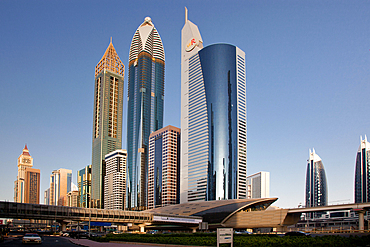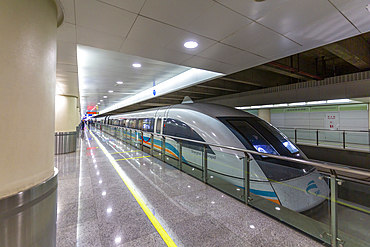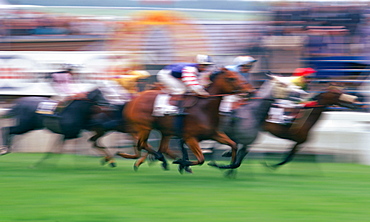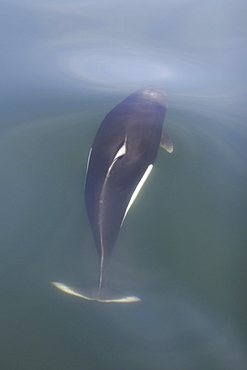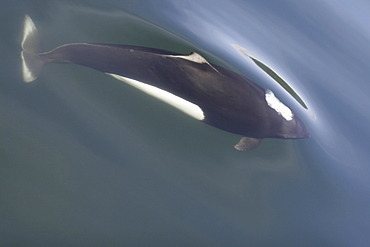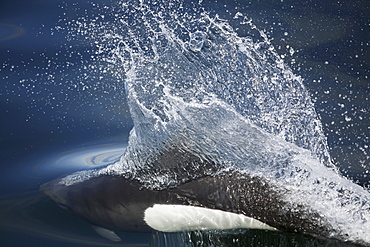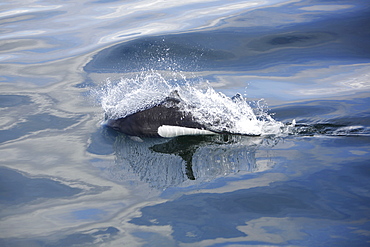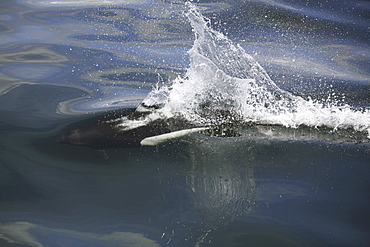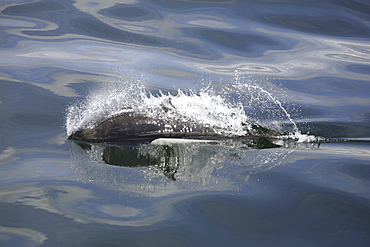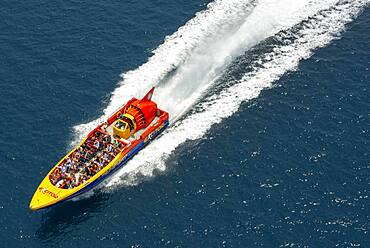Results
14 results found
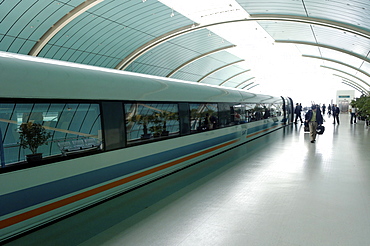
The Maglev, the world's fastest train with a maximum speed of 430 km an hour, from Pudong International Airport to the Long Yang Road subway station, Shanghai, China, Asia

View of modern skyscrapers in Dubai, the fastest growing city in the world, Dubai, United Arab Emirates

View of modern skyscrapers in Dubai, the fastest growing city in the world, Dubai, United Arab Emirates
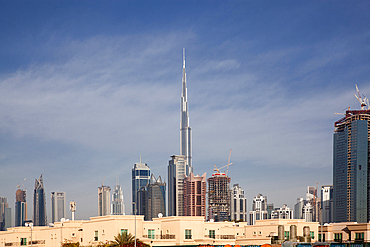
View of modern skyscrapers in Dubai, the fastest growing city in the world, Dubai, United Arab Emirates

View of modern skyscrapers in Dubai, the fastest growing city in the world, Dubai, United Arab Emirates
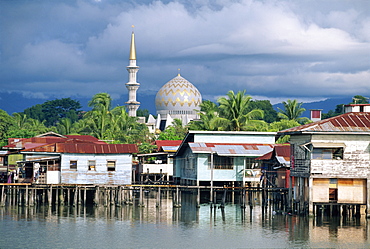
Stilt village and State Mosque in Kota Kinabalu, Asia's fastest growing city and capital of Sabah, northern tip of Borneo, Malaysia, Southeast Asia, Asia
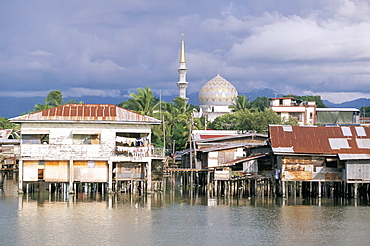
Stilt village and State mosque in Kota Kinabalu, Asia's fastest growing city, Sabah, Malaysia, island of Borneo, Southeast Asia, Asia
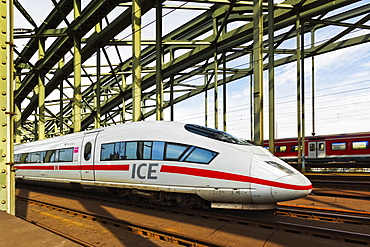
Intercity-Express ICE train, fastest on the network, on Hohenzollern railway bridge, Cologne, North Rhine-Westphalia, Germany, Europe
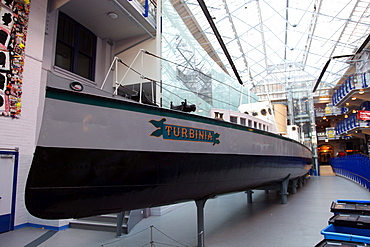
Turbinia, fastest ship in the world in the 1890's, Museum of Discovery, Newcastle upon Tyne, Tyne and Wear, England, United Kingdom, Europe
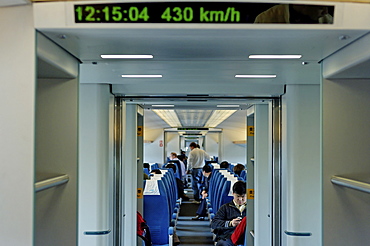
The Maglev, the world's fastest train, from Pudong International Airport to the Long Yang Road Subway station, Shanghai, China, Asia

The Maglev, the world's fastest train, from Pudong International Airport to the Long Yang Road Subway station, Shanghai, China, Asia
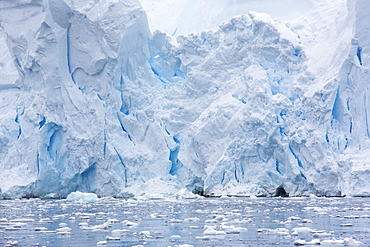
Retreating glaciers in Wilhelmina Bay off Graham Land on the Antarctic Peninsular, which is one of the fastest warming places on the planet.
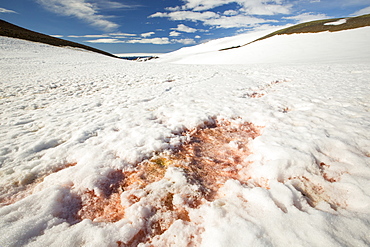
Red algae in the snow on a receding glacier in Suspiros Bay on Joinville Island just off the Antarctic Peninsular. The peninsular is one of the fastest warming places on the planet.
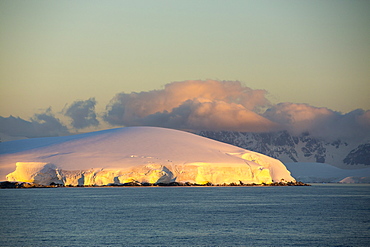
Evening light over mountains from the Gerlache Strait separating the Palmer Archipelago from the Antarctic Peninsular off Anvers Island. The Antartic Peninsular is one of the fastest warming areas of the planet.
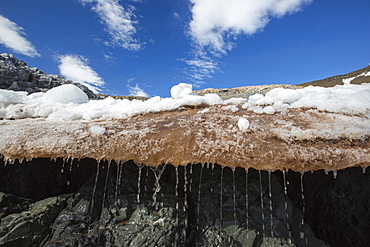
Melting ice and snow at on Joinville Island just off the Antarctic Peninsular. The peninsular is one of the fastest warming places on the planet.
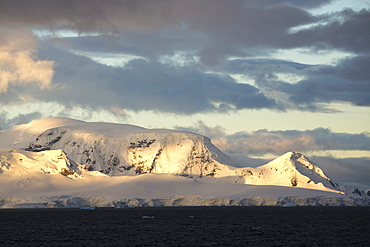
Light on mountainous scenery in Graham Land in Wilhelmina Bay on the Antarctic Peninsular, which is one of the fastest warming places on the planet.
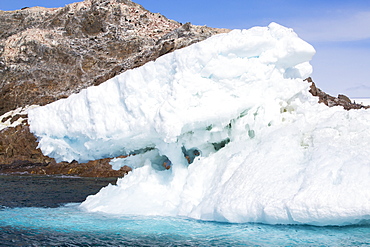
Guano in an Adelie Penguin, Pygoscelis adeliae, colony at Madder Cliffs, Suspiros Bay, at the west end of Joinville Island, Antarctica. Adelie's are a true Antarctic species which are suffering as a result of climate change, The Antarctic Peninsular, their only breeding grounds, is one of the fastest warming areas on the planet. This is causing Adelies to migrate south. They are reducing in numbers, they feed almost exclusively on Krill, which is also declining as a result of climate change.
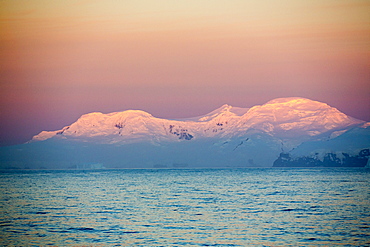
Evening light over mountains from the Gerlache Strait separating the Palmer Archipelago from the Antarctic Peninsular off Anvers Island. The Antartic Peninsular is one of the fastest warming areas of the planet.
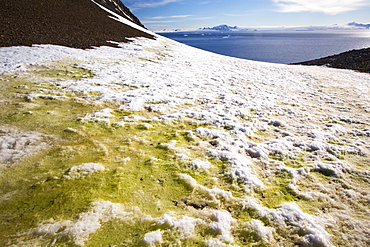
Algae in melting snow on Joinville Island just off the Antarctic Peninsular which is one the the fastest warming places on the planet.
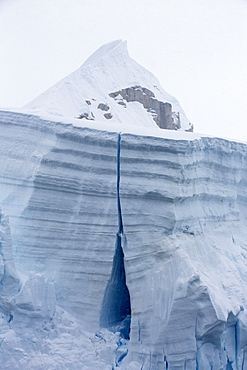
Retreating glaciers in Wilhelmina Bay off Graham Land on the Antarctic Peninsular, which is one of the fastest warming places on the planet.

Emissions from the Akademik Sergey Vavilov, an ice strengthened ship on an expedition cruise to Antarctica, in Paradise Bay in the Antarctic Peninsular, which is one of the fastest warming places on the planet.
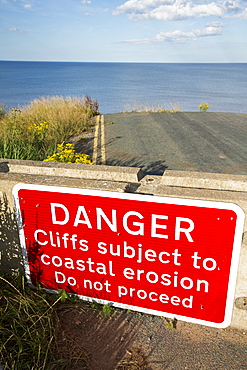
A collapsed coastal road near Skipsea on Yorkshires East Coast, UK. The coast is composed of soft boulder clays, very vulnerable to coastal erosion. This sectiion of coast has been eroding since Roman times, with many villages having disappeared into the sea, and is the fastest eroding coast in Europe. Climate change is speeding up the erosion, with sea level rise, increased stormy weather and increased heavy rainfall events, all playing their part.
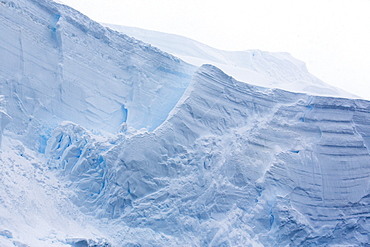
Retreating glaciers in Wilhelmina Bay off Graham Land on the Antarctic Peninsular, which is one of the fastest warming places on the planet.
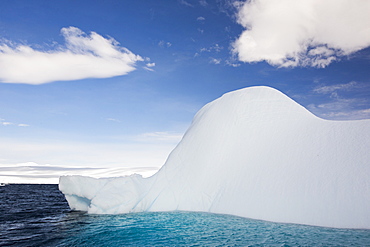
An iceberg melting in Suspiros Bay off Joinville Island just off the Antarctic Peninsular. The peninsular is one of the fastest warming places on the planet.
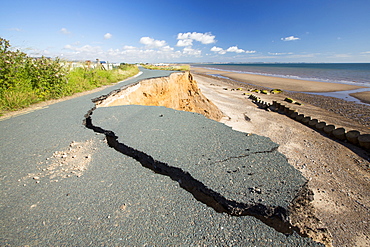
A collapsed coastal road at between Skipsea and Ulrome on Yorkshires East Coast, near Skipsea, UK. The coast is composed of soft boulder clays, very vulnerable to coastal erosion. This sectiion of coast has been eroding since Roman times, with many villages having disappeared into the sea, and is the fastest eroding coast in Europe. Climate change is speeding up the erosion, with sea level rise, increased stormy weather and increased heavy rainfall events, all palying their part.
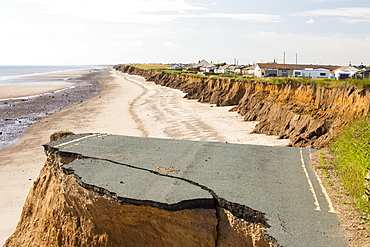
A collapsed coastal road at between Skipsea and Ulrome on Yorkshires East Coast, near Skipsea, UK. The coast is composed of soft boulder clays, very vulnerable to coastal erosion. This sectiion of coast has been eroding since Roman times, with many villages having disappeared into the sea, and is the fastest eroding coast in Europe. Climate change is speeding up the erosion, with sea level rise, increased stormy weather and increased heavy rainfall events, all palying their part.

Mountain peaks on Joinville Island just off the Antarctic Peninsularwith members from an expedition cruise ship. The peninsular is one of the fastest warming places on the planet.
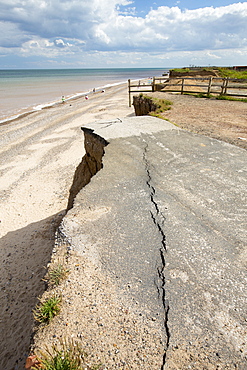
A collapsed coastal road at Easingotn on Yorkshires East Coast, near Skipsea, UK. The coast is composed of soft boulder clays, very vulnerable to coastal erosion. This sectiion of coast has been eroding since Roman times, with many villages having disappeared into the sea, and is the fastest eroding coast in Europe. Climate change is speeding up the erosion, with sea level rise, increased stormy weather and increased heavy rainfall events, all palying their part.
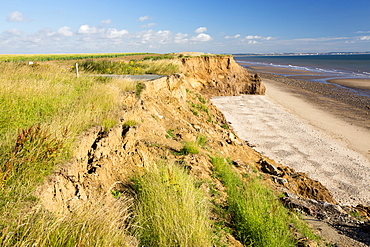
A collapsed coastal road at near Aldbrough on Yorkshires East Coast, near Skipsea, UK. The coast is composed of soft boulder clays, very vulnerable to coastal erosion. This sectiion of coast has been eroding since Roman times, with many villages having disappeared into the sea, and is the fastest eroding coast in Europe. Climate change is speeding up the erosion, with sea level rise, increased stormy weather and increased heavy rainfall events, all palying their part.
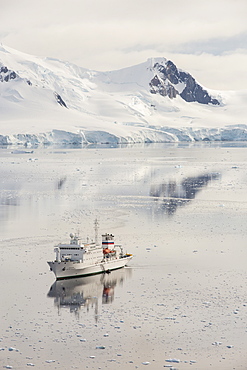
The Akademik Sergey Vavilov, an ice strengthened ship on an expedition cruise to Antarctica, in Paradise Bay in the Antarctic Peninsular, which is one of the fastest warming places on the planet.
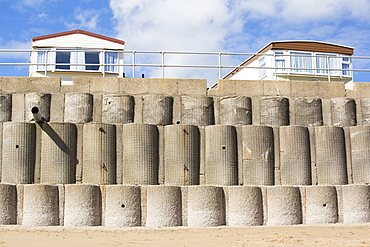
Concrete sea defences at Beach Bank Caravan Park in Ulrome near Skipsea on Yorkshires East Coast, UK. The coast is composed of soft boulder clays, very vulnerable to coastal erosion. This section of coast has been eroding since Roman times, with many villages having disappeared into the sea, and is the fastest eroding coast in Europe. Climate change is speeding up the erosion, with sea level rise, increased stormy weather and increased heavy rainfall events, all playing their part.
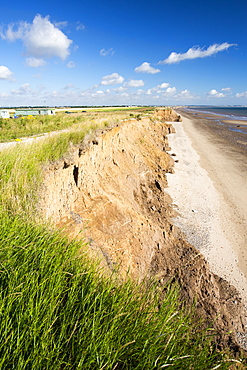
A collapsed coastal road at between Skipsea and Ulrome on Yorkshires East Coast, near Skipsea, UK. The coast is composed of soft boulder clays, very vulnerable to coastal erosion. This sectiion of coast has been eroding since Roman times, with many villages having disappeared into the sea, and is the fastest eroding coast in Europe. Climate change is speeding up the erosion, with sea level rise, increased stormy weather and increased heavy rainfall events, all palying their part.
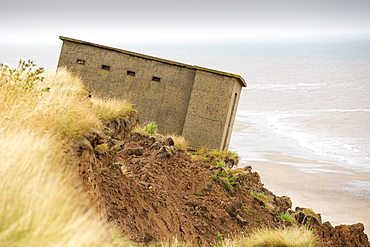
A Second world War lookout post leaning alarmingly and about to tumble over the edge of the cliff near Aldbrough on Yorkshires East Coast, UK. The coast is composed of soft boulder clays, very vulnerable to coastal erosion. This section of coast has been eroding since Roman times, with many villages having disappeared into the sea, and is the fastest eroding coast in Europe. Climate change is speeding up the erosion, with sea level rise, increased stormy weather and increased heavy rainfall events, all playing their part.
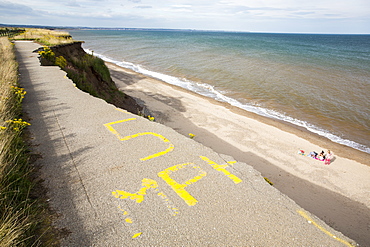
A collapsed coastal road at Barmston on Yorkshires East Coast, near Skipsea, UK. The coast is composed of soft boulder clays, very vulnerable to coastal erosion. This sectiion of coast has been eroding since Roman times, with many villages having disappeared into the sea, and is the fastest eroding coast in Europe. Climate change is speeding up the erosion, with sea level rise, increased stormy weather and increased heavy rainfall events, all palying their part.
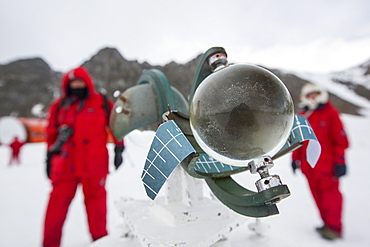
A Campbell Stokes Sunshine Recorder, which measures hours of sunlight at Base Orcadas, which is an Argentine scientific station in Antarctica, and the oldest of the stations in Antarctica still in operation. It is located on Laurie Island, one of the South Orkney Islands, just off the Antarctic Peninsular. The Antarctic Peninsular is one of the fastest warming places on the planet.
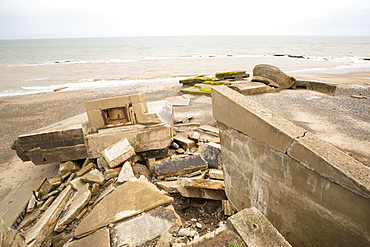
The Remains of the Godwin battery on the beach at Kilnsea at the head of Spurn point on Yorkshires East Coast, UK. Initially constructed during the First World War, the Godwin Battery was added to during the Second World War. It comprised of gun emplacements, search light, barracks, officers’ mess, and a hospital. This section of coastline is the fastest eroding coastline in Europe. The soft boulder clay cliffs are easily eroded and have been eroding since Roman Times, but recently the climate change impacts of increased stormy weather, increased heavy rainfall events and sea level rise have accelerated the rate of erosion. The average rate of attrition is 1.5metres per year, last year it was 5 metres.
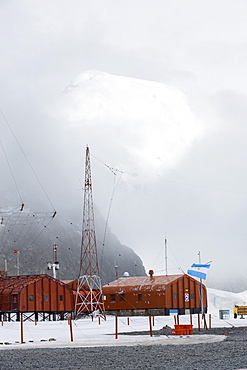
Base Orcadas is an Argentine scientific station in Antarctica, and the oldest of the stations in Antarctica still in operation. It is located on Laurie Island, one of the South Orkney Islands, just off the Antarctic Peninsular. The Antarctic Peninsular is one of the fastest warming places on the planet.
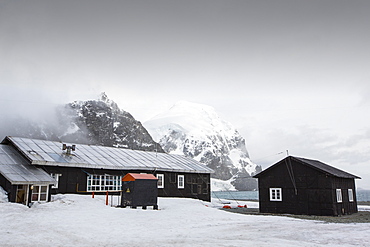
Base Orcadas is an Argentine scientific station in Antarctica, and the oldest of the stations in Antarctica still in operation. It is located on Laurie Island, one of the South Orkney Islands, just off the Antarctic Peninsular. The Antarctic Peninsular is one of the fastest warming places on the planet.
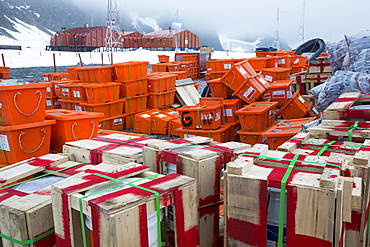
Supplies at Base Orcadas which is an Argentine scientific station in Antarctica, and the oldest of the stations in Antarctica still in operation. It is located on Laurie Island, one of the South Orkney Islands, just off the Antarctic Peninsular. The Antarctic Peninsular is one of the fastest warming places on the planet.
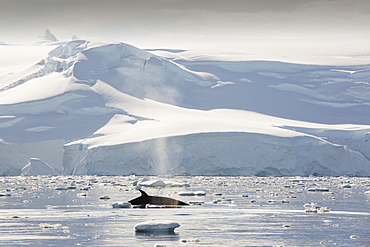
Minke Whales(Balaenoptera acutorostrata) feeding in the Gerlache Strait separating the Palmer Archipelago from the Antarctic Peninsular off Anvers Island. The Antartic Peninsular is one of the fastest warming areas of the planet.
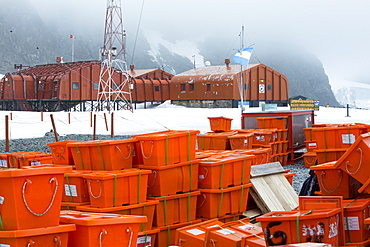
Supplies at Base Orcadas which is an Argentine scientific station in Antarctica, and the oldest of the stations in Antarctica still in operation. It is located on Laurie Island, one of the South Orkney Islands, just off the Antarctic Peninsular. The Antarctic Peninsular is one of the fastest warming places on the planet.
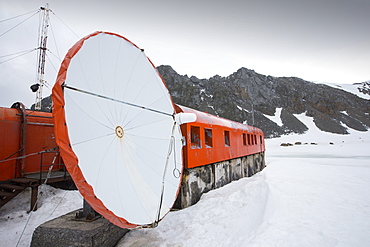
Base Orcadas is an Argentine scientific station in Antarctica, and the oldest of the stations in Antarctica still in operation. It is located on Laurie Island, one of the South Orkney Islands, just off the Antarctic Peninsular. The Antarctic Peninsular is one of the fastest warming places on the planet.
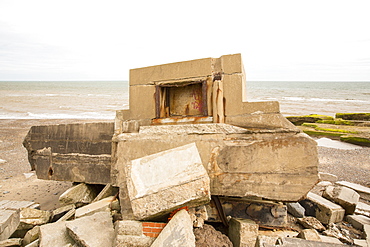
The Remains of the Godwin battery on the beach at Kilnsea at the head of Spurn point on Yorkshires East Coast, UK. Initially constructed during the First World War, the Godwin Battery was added to during the Second World War. It comprised of gun emplacements, search light, barracks, officers’ mess, and a hospital. This section of coastline is the fastest eroding coastline in Europe. The soft boulder clay cliffs are easily eroded and have been eroding since Roman Times, but recently the climate change impacts of increased stormy weather, increased heavy rainfall events and sea level rise have accelerated the rate of erosion. The average rate of attrition is 1.5metres per year, last year it was 5 metres.
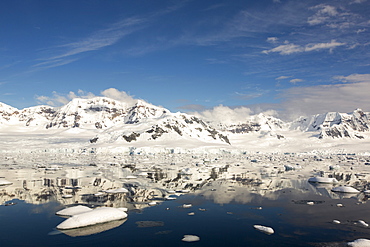
The Gerlache Strait separating the Palmer Archipelago from the Antarctic Peninsular off Anvers Island. The Antartic Peninsular is one of the fastest warming areas of the planet.
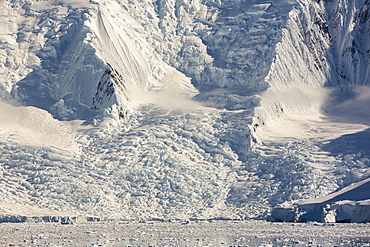
The Gerlache Strait separating the Palmer Archipelago from the Antarctic Peninsular off Anvers Island. The Antartic Peninsular is one of the fastest warming areas of the planet.
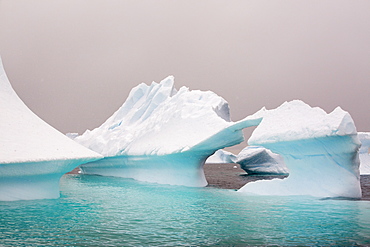
Icebergs oof Curverville Island on the Antarctic Peninsular, which is one of the fastest warming places on the planet.
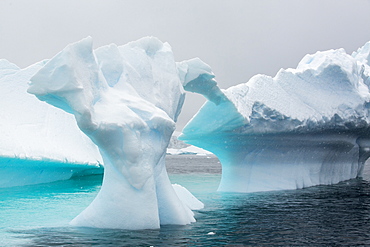
Icebergs oof Curverville Island on the Antarctic Peninsular, which is one of the fastest warming places on the planet.
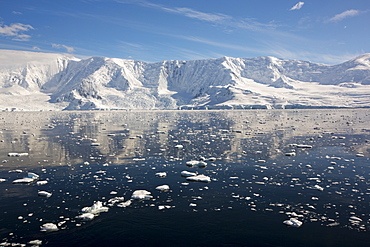
The Gerlache Strait separating the Palmer Archipelago from the Antarctic Peninsular off Anvers Island. The Antartic Peninsular is one of the fastest warming areas of the planet.
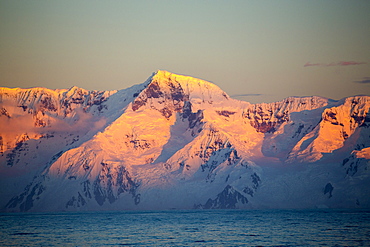
Evening light over mountains from the Gerlache Strait separating the Palmer Archipelago from the Antarctic Peninsular off Anvers Island. The Antartic Peninsular is one of the fastest warming areas of the planet.
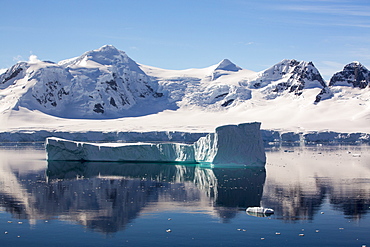
The Gerlache Strait separating the Palmer Archipelago from the Antarctic Peninsular off Anvers Island. The Antartic Peninsular is one of the fastest warming areas of the planet.
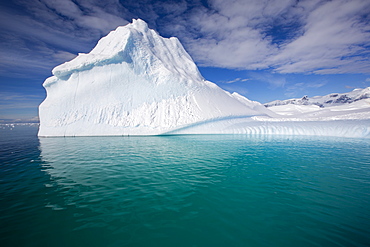
An iceberg in the Gerlache Strait separating the Palmer Archipelago from the Antarctic Peninsular off Anvers Island. The Antartic Peninsular is one of the fastest warming areas of the planet.
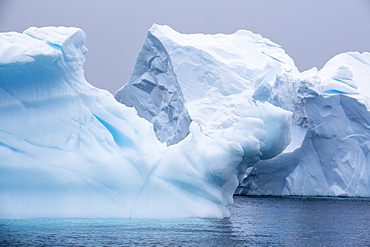
Icebergs oof Curverville Island on the Antarctic Peninsular, which is one of the fastest warming places on the planet.
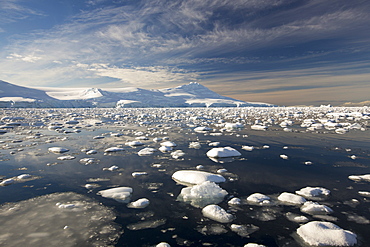
The Gerlache Strait separating the Palmer Archipelago from the Antarctic Peninsular off Anvers Island. The Antartic Peninsular is one of the fastest warming areas of the planet.
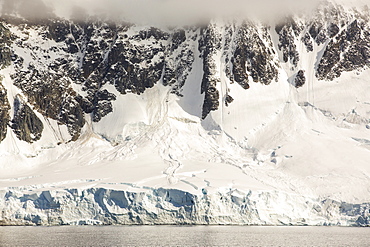
The Gerlache Strait separating the Palmer Archipelago from the Antarctic Peninsular off Anvers Island. The Antartic Peninsular is one of the fastest warming areas of the planet.
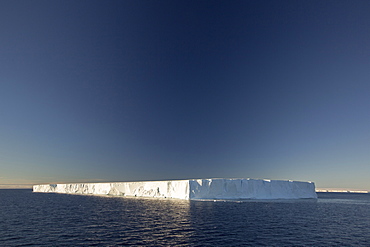
A tabular iceberg off Livoinstone Island on the Antarctic Peninsular. The peninsular is one of the fastest warming places on the planet.
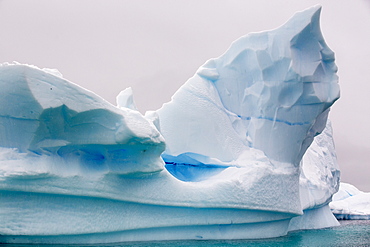
Icebergs oof Curverville Island on the Antarctic Peninsular, which is one of the fastest warming places on the planet.
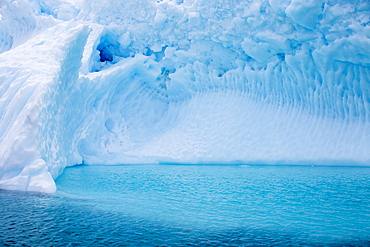
Icebergs oof Curverville Island on the Antarctic Peninsular, which is one of the fastest warming places on the planet.
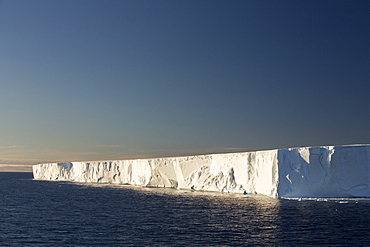
A tabular iceberg off Livoinstone Island on the Antarctic Peninsular. The peninsular is one of the fastest warming places on the planet.
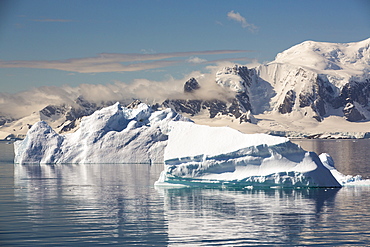
The Gerlache Strait separating the Palmer Archipelago from the Antarctic Peninsular off Anvers Island. The Antartic Peninsular is one of the fastest warming areas of the planet.
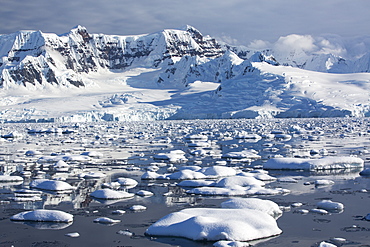
The Gerlache Strait separating the Palmer Archipelago from the Antarctic Peninsular off Anvers Island. The Antartic Peninsular is one of the fastest warming areas of the planet.
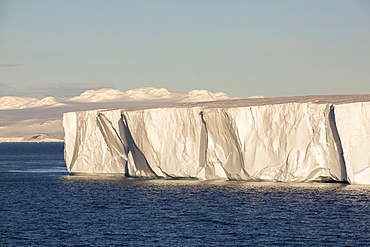
A tabular iceberg off Livoinstone Island on the Antarctic Peninsular. The peninsular is one of the fastest warming places on the planet.
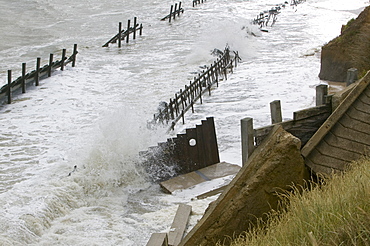
The lifeboat launching ramp destroyed as waves crashing against the coast at Happisburgh on the fastest eroding section of the UK coast, Norfolk, England, United Kingdom, Europe
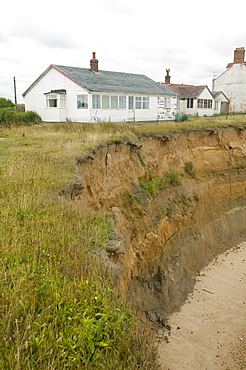
Happisburgh on the fastest eroding section of the UK coast, Norfolk, England, United Kingdom, Europe
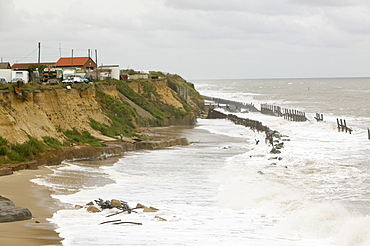
Waves crashing against sea defences at Happisburgh on the fastest eroding section of the UK coast, Norfolk, England, United Kingdom, Europe
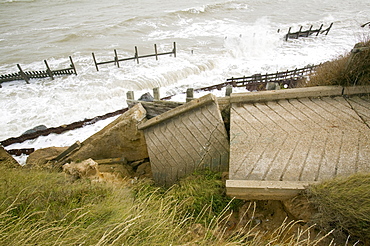
The lifeboat launching ramp destroyed as waves crashing against the coast at Happisburgh on the fastest eroding section of the UK coast, Norfolk, England, United Kingdom, Europe
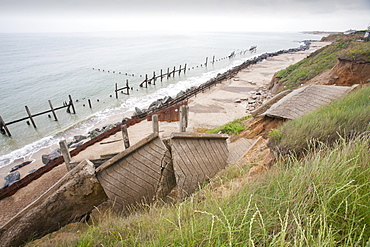
The lifeboat launching ramp destroyed as waves crashing against the coast at Happisburgh on the fastest eroding section of the UK coast, Norfolk, England, United Kingdom, Europe
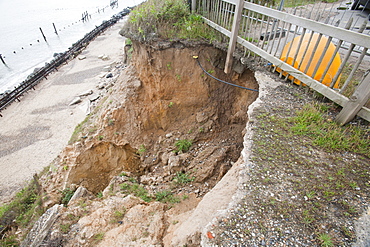
The lifeboat launching ramp destroyed as waves crashing against the coast at Happisburgh on the fastest eroding section of the UK coast, Norfolk, England, United Kingdom, Europe
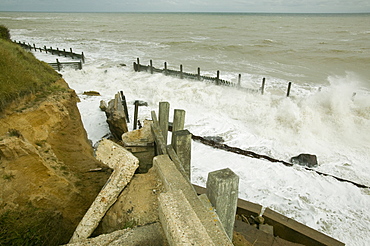
The lifeboat launching ramp destroyed as waves crashing against the coast at Happisburgh on the fastest eroding section of the UK coast, Norfolk, England, United Kingdom, Europe
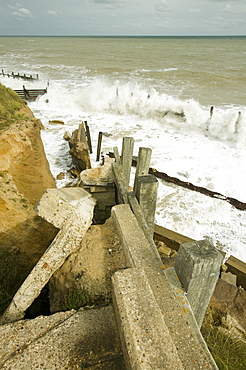
The lifeboat launching ramp destroyed as waves crashing against the coast at Happisburgh on the fastest eroding section of the UK coast, Norfolk, England, United Kingdom, Europe

Adult Dall's Porpoise (Phocoenoides dalli) bow riding in Southeast Alaska, USA. Note: Dall's porpoise is one of the fastest cetaceans in the world!

Adult Dall's Porpoise (Phocoenoides dalli) bow riding in Southeast Alaska, USA. Note: Dall's porpoise is one of the fastest cetaceans in the world!
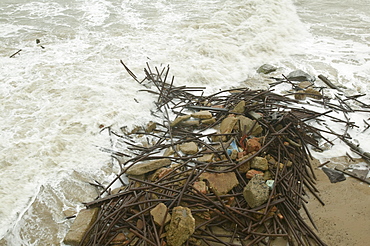
Waves crashing against debris on beach at Happisburgh on the fastest eroding section of the UK coast, Norfolk, England, United Kingdom, Europe

Adult Dall's Porpoise (Phocoenoides dalli) surfacing in Southeast Alaska, USA. Note: Dall's porpoise is one of the fastest cetaceans in the world!

Adult Dall's Porpoise (Phocoenoides dalli) surfacing in Southeast Alaska, USA. Note: Dall's porpoise is one of the fastest cetaceans in the world!

Sea cliffs at Happisburgh on the fastest eroding section of the UK coast, Norfolk, England, United Kingdom, Europe
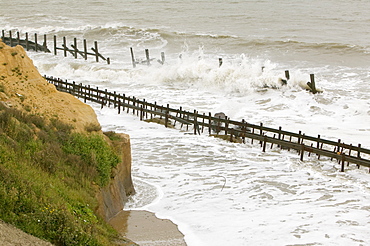
Waves crashing against sea defences at Happisburgh on the fastest eroding section of the UK coast, Norfolk, England, United Kingdom, Europe

Adult Dall's Porpoise (Phocoenoides dalli) bow riding in Southeast Alaska, USA. Note: Dall's porpoise is one of the fastest cetaceans in the world!

Adult Dall's Porpoise (Phocoenoides dalli) bow riding in Southeast Alaska, USA. Note: Dall's porpoise is one of the fastest cetaceans in the world!

Adult Dall's Porpoise (Phocoenoides dalli) surfacing in Southeast Alaska, USA. Note: Dall's porpoise is one of the fastest cetaceans in the world!
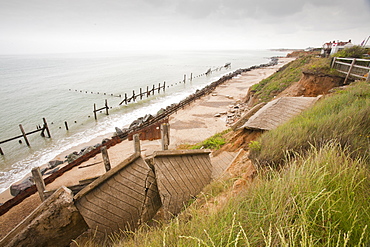
The lifeboat launching ramp destroyed as waves crashing against the coast at Happisburgh on the fastest eroding section of the UK coast, Norfolk, England, United Kingdom, Europe
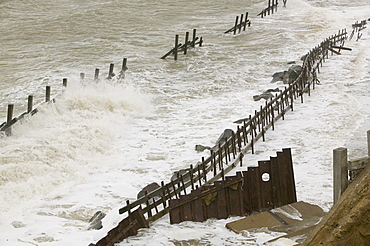
Waves crashing against sea defences at Happisburgh on the fastest eroding section of the UK coast, Norfolk, England, United Kingdom, Europe
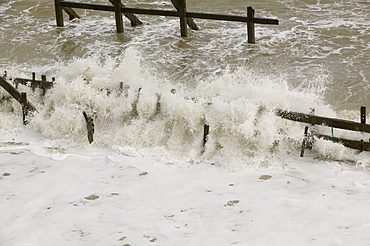
Waves crashing against sea defences at Happisburgh on the fastest eroding section of the UK coast, Norfolk, England, United Kingdom, Europe
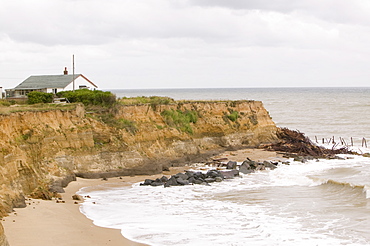
Happisburgh on the fastest eroding section of the UK coast, Norfolk, England, United Kingdom, Europe
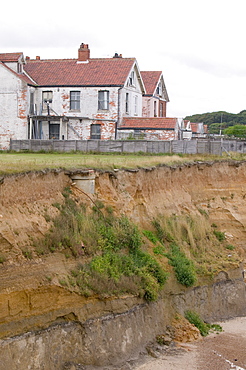
Happisburgh on the fastest eroding section of the UK coast, Norfolk, England, United Kingdom, Europe
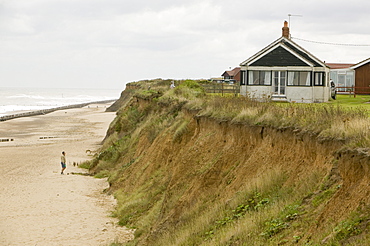
Beach near Happisburgh on the fastest eroding section of the UK coast, Norfolk, England, United Kingdom, Europe
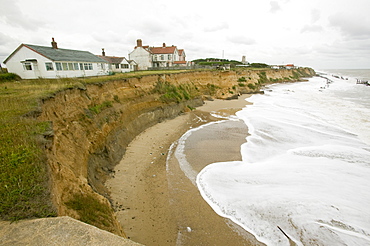
Happisburgh on the fastest eroding section of the UK coast, Norfolk, England, United Kingdom, Europe
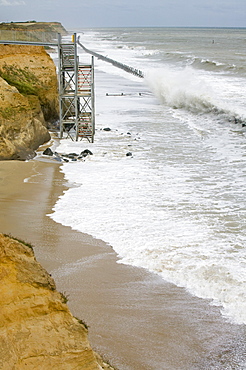
Waves crashing against sea defences at Happisburgh on the fastest eroding section of the UK coast, Norfolk, England, United Kingdom, Europe
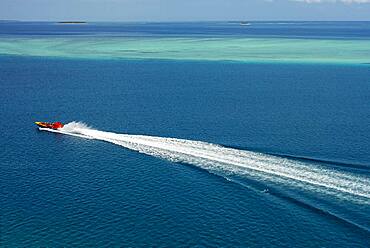
Fiji islands boat experience. Excitor is the fastest boat of its size and kind in Fiji and definitely not to be missed whilst visiting Fiji! Offering unique high-speed tours and transfers around Port Denarau and the Mamanuca Islands.
